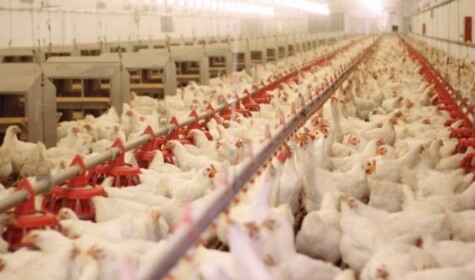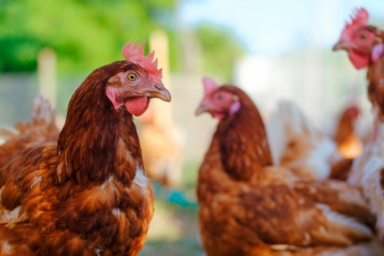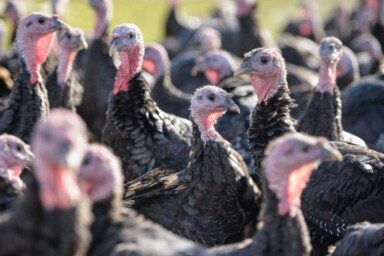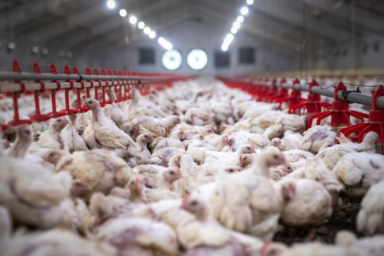The report, titled We Need to Talk About Chicken shows that poultry overtook red meat sales for the first time in 2017 and now accounts for over 50% of meat consumption. In the UK, 850 million chickens are reared for meat, and concerningly, 95% of these are in intensive indoor units, which are associated with poor animal welfare and major environmental impacts.
Patrick Holden, SFT Chief Executive, said, “The Sustainable Food Trust strongly welcomes the Eating Better alliance’s new publication. The report provides important and accessible new information to the millions of consumers who are currently confused in relation to differentiating between sustainable and unsustainable livestock production systems.”
Chicken has often been touted as a healthy and sustainable meat, but it has serious trade-offs that are multiplied many times due to the vast amount of chicken produced. Our growing appetite for chicken accelerates climate change through deforestation in order to supply huge amounts of soya, a major part of the modern-day chicken’s diet.
The UK imports around 3 million tonnes of soya annually. It is estimated that up to 60% of soya is used by the poultry industry. Its production is a major driver of deforestation and land-use change in South America. Over half of the soya used to feed poultry in the UK is not certified deforestation-free.
The report also highlights other, often hidden, costs of modern chicken production for consumers, farmers, the environment and animals. For instance, over 27% of UK chickens suffer from levels of lameness that are likely to be painful, while chicken meat now has fewer essential nutrients and higher levels of fat as a result of the shift to intensive production methods.
Simon Billing, Executive Director, of Eating Better has said, “Now feels like a crossroads for UK agriculture alongside the climate and biodiversity crises. We need to call out that further growth of chicken production is not a health or sustainability solution. There is a need to support nature friendly farming, with less and better meat, that restores our soils, regenerates nature and provides good rural jobs.”
You can learn more about the major problems associated with intensive chicken production on the SFT website with these articles by Zoe Neilson here and here, as well as this short film which illustrates the need for true cost accounting through the example of different systems of chicken production.





